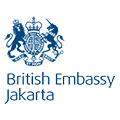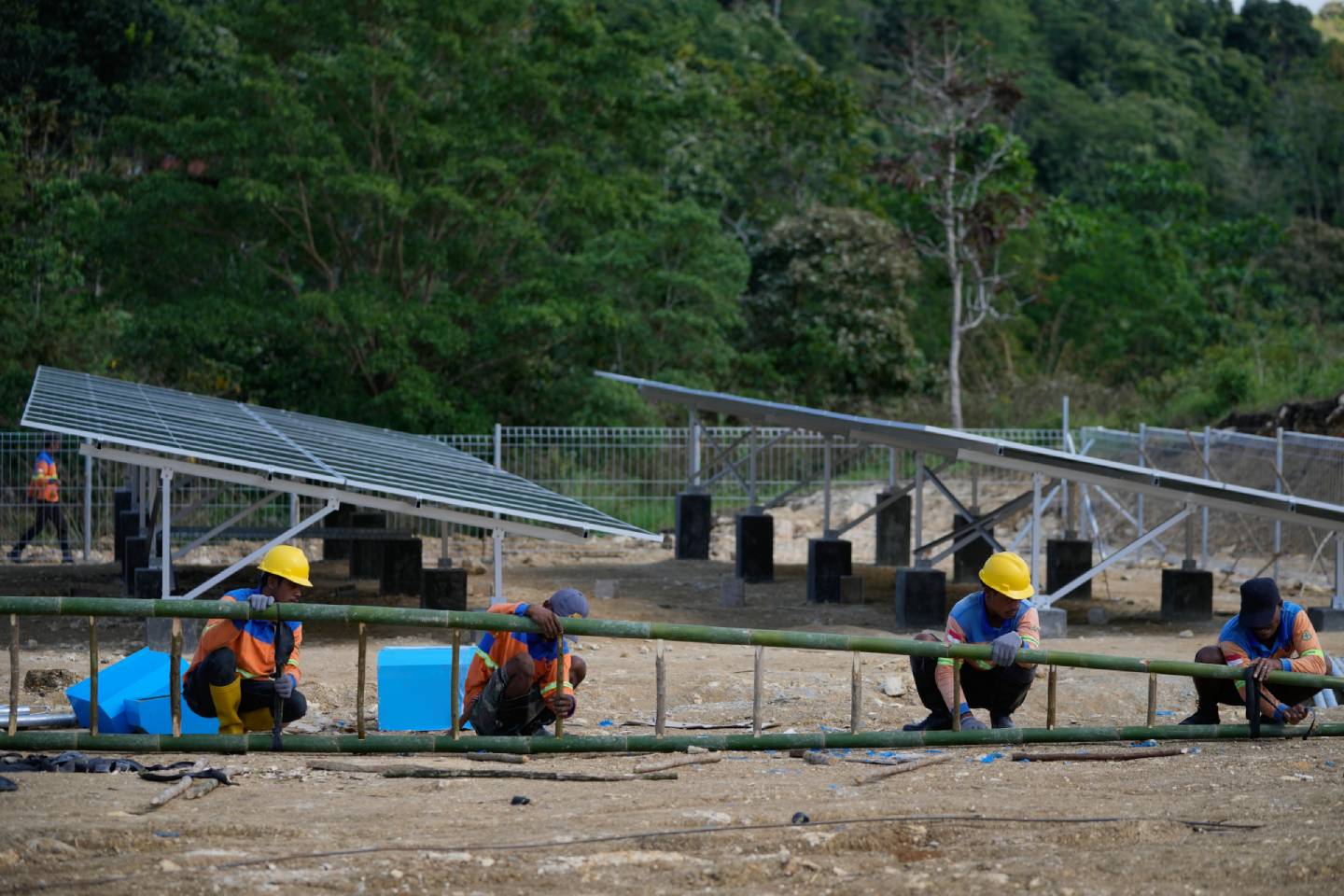Training workshop, Jakarta 8 June 2021
MENTARI’s training on ‘Network management and renewable energy integration in energy transition’ on 8–10 June 2021 was designed to stimulate discussion on Indonesia’s energy transition agenda and learn through the UK–Indonesia bilateral cooperation program.
The training aimed to help the Indonesian government, especially the Ministry of Energy and Mineral Resources (MEMR), develop, negotiate, and implement a progressive renewable energy strategy for decarbonisation at national and regional levels. Other ministries and institutions support the clean energy transition in Indonesia, including the state electricity company, PLN, as the country’s leading actor in the electricity supply business.
Chrisnawan Anditya, from the MEMR, opened the event by saying that the government is determined to achieve a 23 per cent contribution from renewable energy in the national energy mix by 2025, as stipulated in Government Regulation No 79 of 2014 on the national energy policy. With renewable energy contributions standing at only 11,2 per cent in 2021 from power plants of about 10,4GW, the government has a major task and less than five years to reach its target.
As part of efforts to accelerate the energy transition, MEMR is implementing, for example, the B30 co-firing approach – replacing 30 per cent of diesel with biodiesel in certain industries – that works with the existing technology. However, as Chrisnawan continued, “The government has also been converting fossil primary energy sources by changing the generating technology, for example, so that diesel power plants or steam power plants turn into renewable, electric power plants. Then [we also encourage using] biogas, pellets, kerosene, and liquid petroleum gas for cooking. Also, there is the addition of new renewable energy capacity to fulfil the new demand, where the increase focuses on solar power plants, considering the relatively short construction period. [Other measures include] implementing the use of electricity and fuel, such as biomass briquettes for drying agricultural products and biogas.”
The three-day training workshop was an opportunity to share and learn from the UK about integrating renewable energy into the electricity network, including for the islands, and especially about adapting government policy.
Alex Barton, Deputy Head of Low Carbon Energy and Infrastructure Team, British Embassy Jakarta, said he had seen encouraging progress for the energy transition in Indonesia in the previous two months. Indonesia also reaffirmed its commitment to shifting away from its dependence on coal towards renewable energy, “This is a very interesting commitment that Indonesia has made, and the UK appreciates this and strongly supports it. We understand that this journey is not easy and will require substantial funding to finance the policies and new planning processes in Indonesia to deliver high-level renewable energy and maintain the passion that has become a commitment. As a friend of Indonesia, the UK is ready to support Indonesia through this process via the MENTARI programme.”
This training workshop will provide valuable input for Indonesia, with the opportunity to learn from various sources, including Aquatera. Dr. Leuserina Garniati, the training facilitator and a senior consultant for sustainable energy for Aquatera, introduced the training workshop by describing the implementation of renewable energy in island countries like Indonesia as an ‘art.’
The climate emergency and the COVID-19 response
Gareth Davies observed the current state of the world at the beginning of the training workshop. He was reflecting on how people reacted in the face of the COVID-19 pandemic that hit the world and how this emergency forced them to choose between changing habits and keeping safe and healthy, and continuing as normal with the risk of getting COVID-19 and potentially becoming ill or dying due to their lifestyle.
Providing intensive education about COVID-19 made people compliant, and they tended to take the best option of respecting health protocols to stay healthy. Gareth believes that similar efforts for public awareness across all levels of society should be made regarding the need to preserve the earth and its contents and to appreciate the real danger of the ‘climate emergency’ as more dangerous for the world than the ‘COVID-19 emergency’.
As Gareth said, “But the other thing that I think is very interesting over the last 18 months is the impact of COVID-19. In communities around the world, people are willing if instructed to change their way of life (to be protected from COVID-19 exposure), and it’s very important when we are thinking about (and applying it to) the emergency climate because it is more important and more threatening than COVID-19.”
Learning from other countries is vital, and currently, Scotland sets an example for renewable energy, particularly wind energy that it has in abundance. Even last year, 97 per cent of the electricity demand in Scotland came from renewable energy. In addition, we need to constantly think about efficiency and never use energy wastefully.







